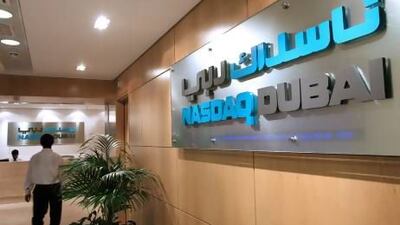Dubai's aim to become the economic hub of the Islamic world is so ambitious that, to achieve it, the grand strategy will have to be split into manageable parts for implementation.
Plans for one vital part - the reclaiming of the sukuk industry as an Arabian Gulf-centred business - are well under way, but are about to get a boost from a proposal prepared by Nasdaq Dubai and circulated among that exchange's member firms.
If the strategy works, Dubai will stand a good chance of becoming the leading market for the issuance and trading of sukuk and other fixed-income securities not just in the region, but in the world.
Historically, the global sukuk business has split between two rather unlikely hubs - London and Malaysia. London is a leading global centre for conventional finance, but has also achieved a commanding position in the sukuk business.
The United Kingdom capital's efficiency in listing procedures and track record in running orderly markets has given it a commanding position in the sukuk business, with an estimated US$27 billion (Dh99.17bn) worth of sukuks listed there.
Malaysia, of course, is an Islamic country and a recognised trading centre at the heart of the big Muslim populations of South East Asia. It is second behind London with $25bn of sukuks listed on two exchanges.
The mystery is why the Middle East has not developed a single hub for sukuk trading. The UAE, with slightly more than $10bn of sukuk listed, is the biggest, with Saudi Arabia at $6.7bn. The rest of the GCC financial centres trail away into the distance.
No Gulf centre can rival the great hubs to west and east, which is perplexing, given the region's history as the birthplace of Islam and the source of huge energy-related capital.
The Nasdaq Dubai proposal would be a big step towards correcting that anomaly. Currently sukuks (and other fixed-interest securities) are traded on what the professionals call the "over the counter" market, meaning that brokers and investors do ad-hoc deals to buy a specific instrument from a counter-party.
Nasdaq Dubai is instead proposing the creation of an electronic, automated fixed income trading platform to allow institutional and professional investors access to a transparent and regulated exchange for these securities.
The big advantages are the transparency and efficiency such a market, under the regulatory auspices of the Dubai Financial Services Authority, would bring to the emirate.
The new structure would make use of the DFM X-Stream trading system, already used as the common platform for equity trading on both the Dubai Financial Market and Nasdaq Dubai, and transaction would be settled through the Euroclear Bank via its existing system of delivery versus payments.
Having the right mechanism in place is a crucial step, but there must also be a will on the part of the Dubai authorities to use it. Some government and government-related sukuk issues have in the recent past gone to London, instead of exploiting the opportunity to enhance the home market.
It would be very difficult indeed to persuade the rest of the world to use Dubai as its Sharia-compliant hub if future new instruments from local issuers, whether of equities or fixed-interest, headed towards London or Kuala Lumpur.
The market authorities are reacting quickly following the policy statement from Sheikh Mohammed bin Rashid, Vice President of the UAE and Ruler of Dubai, that the emirate should aim to be the Sharia-compliant centre of the world.
Recently, the DFM issued new guidelines for standardisation of sukuk issues that are being considered by market participants. Their response is expected by the end of the month.
Once the guidelines are agreed, and the Nasdaq Dubai trading platform introduced, two of the big hurdles to building an Islamic financial hub will have been overcome.
There is more to do, especially on agreeing unified criteria for fatwa pronouncement and arbitration. But progress so far shows how quickly and effectively the Dubai markets can cooperate when incentivised by a clear direction from the very top of the policymaking pyramid.

